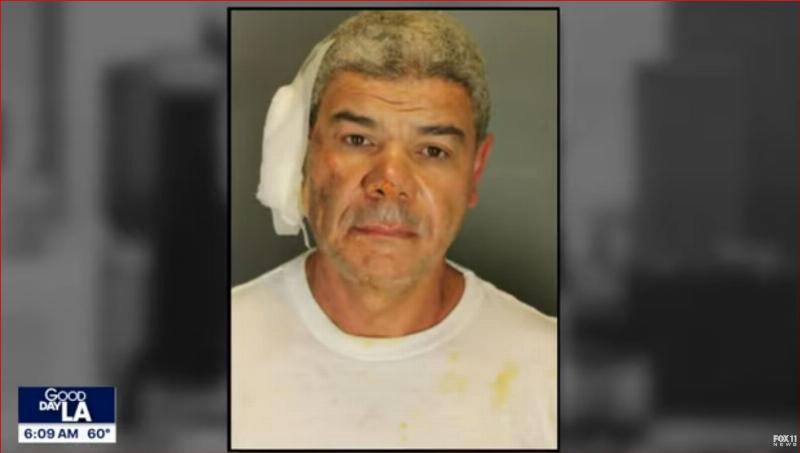


The recent arrest of Mohamed Sabry Soliman in Boulder, Colorado, for a horrific Molotov cocktail attack on pro-Israel demonstrators is a glaring indictment of the state’s misguided sanctuary policies.
This was not an isolated incident, but a symptom of a broader failure rooted in Colorado’s embrace of sanctuary policies that shield illegal aliens from accountability and enable dangerous outcomes.
Soliman, an Egyptian national who allegedly planned his act of terror for a year, targeted a peaceful rally and injured 15 people. Colorado and its sanctuary cities are reaping what they have sown, as evidenced by other incidents that have resulted in preventable deaths and intimidation by foreign gangs.
Soliman’s case is a stark example of how sanctuary policies can embolden those with malicious intent.
Arriving in the U.S. on a tourist visa in August 2022, Soliman overstayed his authorized stay and filed for asylum, receiving work authorization from the Biden administration despite his illegal status.
Rather than facing deportation, he was allowed to remain in Colorado, a state that has proudly declared itself a haven for illegal aliens. Soliman’s ability to blend into the community, even obtaining a Colorado driver’s license, underscores how these policies create an environment where aliens with a violent agenda can evade scrutiny.
The tragic death of Kaitlyn Weaver in July 2024 further illustrates the human cost of these policies. Weaver, a 24-year-old Aurora resident, was killed in a hit-and-run by a 15-year-old illegal alien who allegedly stole his mother’s car and fled the scene of the accident. The county district attorney gave the teen probation and community service, an outrageously lenient consequence for criminal behavior that ended a promising young woman’s life.
Adding to this troubling pattern is the recent takeover of apartment buildings in Boulder by the ruthless Venezuelan gang Tren de Aragua. Reports indicate that gang members exploited Colorado’s lax enforcement environment to intimidate residents and seize control of properties.
These incidents demonstrate how sanctuary policies can create a vacuum where criminal elements thrive. The presence of criminal aliens like Soliman in the once-idyllic college town of Boulder is a disturbing shift, one that residents are increasingly unwilling to tolerate.
At the state level, Gov. Jared Polis has doubled down on these policies. Last month he signed SB 25-276, which expanded protections for illegal aliens by further limiting local law enforcement’s ability to cooperate with Immigration and Customs Enforcement (ICE) agents. This legislation, touted by advocates as a humanitarian measure, also prohibits sharing information about immigration status and restricts detentions based on ICE requests.
We are past the time to declare America’s experiment with sanctuary policies a wasteful, tragic failure. Cities and states that have adopted these measures in the name of compassion have seen a surge in crime, strained public resources, and growing resentment among citizens who feel their needs are ignored.
Sanctuary policies divert limited resources from social welfare programs meant for citizens, such as housing, health care, and education, to accommodate illegal aliens.
In Colorado, the influx of migrants has overwhelmed local shelters and schools, leaving taxpayers to foot the bill while services for residents are stretched thin. The prioritization of
foreign nationals over citizens has sparked a backlash, as communities grapple with the impact of policies that seem to value an extremist ideology over representative government.
The recent presidential election results sent a clear message: a majority of Americans are fed up with sanctuary policies that undermine safety and sovereignty. President Donald Trump’s decisive victory was fueled, in part, by voter frustration with unchecked migration and its negative effect on communities. Exit polls showed that immigration was a top concern for voters, with many citing incidents like those in Boulder as evidence of a broken system.
The arrest of Mohamed Soliman is a wake-up call. Colorado and other sanctuary jurisdictions cannot continue to ignore the consequences of their policies. The death of Kaitlyn Weaver, the fear of Boulder residents terrorized by gangs, and the burns of those attacked by Soliman are unacceptable in American society. The state and our nation must chart a new, better path, or we will continue to reap the bitter harvest of our own making.
Dale L. Wilcox is executive director and general counsel for the Immigration Reform Law Institute, a public interest law firm working to defend the rights and interests of the American people from the negative effects of mass migration.
Image: Screen shot from Fox11 News video, via YouTube.
